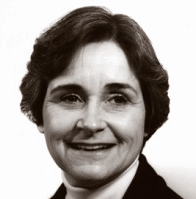While studying for my Ph.D. in higher education management at the University of Michigan I took a law course taught by Virginia Nordby. The first day I walked into her class, I thought she was another student. She sat at the round table in the classroom quietly smiling and looking like someone’s grandmother. She was a charming, graceful woman whose passions slipped through the cracks of her teaching but rarely distorted her presentations.
We studied legal cases in a style similar to, although gentler than, most law schools. After a couple of classes, when Professor Nordby asked a question everyone would freeze, because we knew that it wouldn’t really matter what answer we gave; she would take the opposite viewpoint, and persuasively so, whatever we said.
We learned how the case was made for segregation through a carefully constructed series of court cases. We dissected opinions that affected education and then, when we had exhausted the topic, our professor would tell us the how the personal lives of the judges had affected their decisions. Without ever raising her voice, she enlightened us about injustices in the system, but applauded its logic. She showed us how universities really ran, and how they were molded by the law. In my future career as dean and Vice Chancellor, it was the most useful class from my doctoral studies.
In a classroom, it is not unusual to learn about the life of a professor, but Virginia Nordby did not reveal much. We knew she was in the same law school at Stanford as Sandra Day O’Connor and that women were not called on in class. Little else was revealed. We gleaned her passions from the cases she presented to us and our knowledge about her work for affirmative action at the University of Michigan but, unlike other professors, she volunteered little else
I was delighted—and not at all surprised—to find, while working on this First Woman To. . .Project that Virginia Nordby was a first woman. I learned that she was the first woman delegate to Rotary International’s Council on Legislation. The Council met in New Delhi, India that year, fitting since India was the first country to petition the Council to admit women to Rotary. In July of 1995 she was one of the first eight women to become district governors of Rotary in the United States.
As I continued my research, I learned that she was the principal drafter of the Michigan Criminal Sexual Conduct Act, labeling rape as a violent crime and protecting the victim. The language she crafted became a standard, used for countless other bills. She also served on the Women’s Commission, which analyzed Michigan laws to study how they differed in application and language between men and women.
It is fitting that she received the Susan B. Anthony Award from the University of Michigan and was inducted into the Michigan Women’s Hall of Fame. She is a model for all those women who quietly worked, and continue to work, for women’s rights. She is probably not atypical of women who do excellent work without bragging about their accomplishments.

